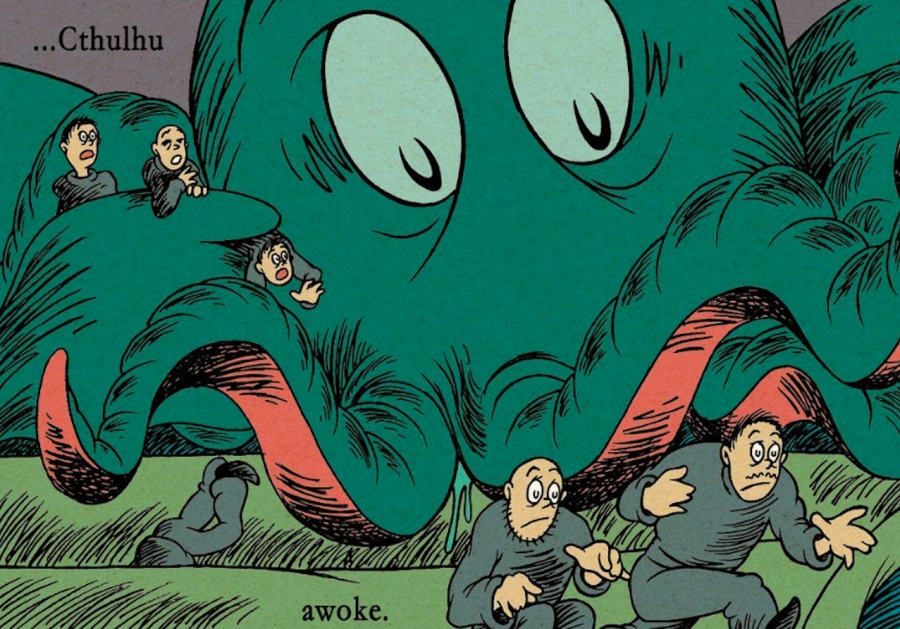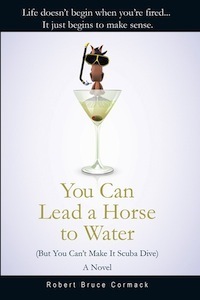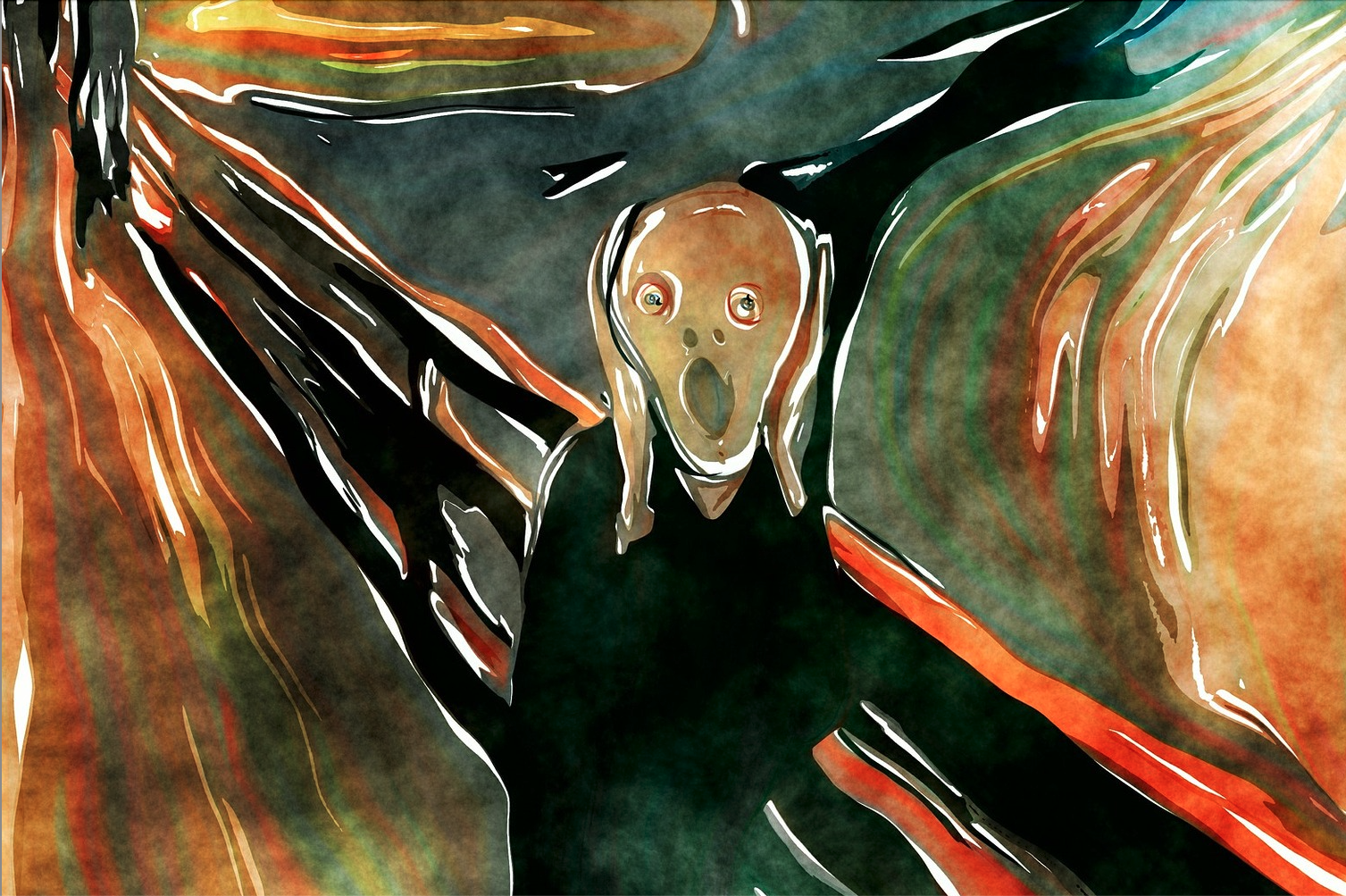The Oddity of Words.

“You have to be odd to be number one.” Dr. Seuss
Theodor Geisel (Dr. Seuss), author of 42 children’s books, didn’t like kids. As Geisel once confessed, “You have’m, I’ll amuse’m.” He created The Cat In the Hat because he found Dick and Jane boring. Oh, The Places You’ll Go was supposed to be read by expectant mothers to their soon-to-be newborns. He also coined the word “nerd” for his book If I Ran the Zoo.
“I like nonsense, it wakes up the brain cells,” Geisel once said, and he certainly believed in nonsense. Little did he know he’d be coining a term for future tech billionaires. They would invent their own odd words like “zap” and “pram,” while rendering words like “help” completely useless.
Not only did Geisel create “nerd,” he also created “guff,” which went on to become “I don’t take any guff.” Geisel prided himself on not taking any guff from children. He accomplished this by not having any. His wife, Audrey, admitted they scared the crap out of him. He didn’t do readings.
Possibly Carroll would have chortled and been snarky if someone had accused him of pedophilia.
Lewis Carroll liked children — possibly too much, according to some Carroll scholars. He took nude pictures of Alice’s older sister, Lorina Liddell (then 13 years old). That could have landed him in prison. Perhaps writing Alice’s Adventures in Wonderland showed he was just looking for a muse. Still, going from a 13 to an 11-year-old wasn’t exactly moving in the right direction.
Photography aside, Carroll still managed to come up with some pretty interesting words like “chortle” and “snark.” Possibly Carroll would have chortled and been snarky if someone had accused him of pedophilia.
Chortle is actually a combination of “chuckle” and “snort,” what linguists call a “portmanteau.” This was invented by Lewis Carroll, too. He probably figured someone was going to take him to task over “slithy” which combines “slim” and “lithe.”
He went on to help form the “cyberpunk” movement when he ran out of hippy chicks.
Fans of Superman should know that the word itself wasn’t created by Jerry Siegel and Joe Shuster. Long before they developed their “caped crusader,” George Bernard Shaw coined the term for Man and Superman. He, in turn, stole it from Friedrich Nietzsche. Interestingly, both men wore capes over their tuxedos and, later in life, Nietzsche did, in fact, think he could fly.
William Gibson is credited with the term “cyberspace” which first appeared in his short story Burning Chrome. Gibson was a conscientious objector during the Vietnam War. Moving to Toronto, he said that he wasn’t avoiding the draft so much as wanting to “sleep with hippie chicks.” He went on to help form the “cyberpunk” movement when he ran out of hippy chicks.
So why are odd people responsible for so many words? Linguists believe it’s all part of the creative process. Once you step outside standard literary form, throwing in a few words of your own seems perfectly reasonable.
Anthony Burgess created a whole vocabulary for A Clockwork Orange. His characters were so weirdly violent, it seemed natural to give them weird names. Like Carroll, Burgess tended to use portmanteaus, such as “droog” which is a variation of the Russian “drug friend.”
One day, he just blurted out “rock ‘n roll.” It stuck because nobody else knew what to call it. Sometimes words and terms happen when we’re stumped.
Sometimes it’s not even the author but the critic who creates the terms. Columnist, Herb Caen, created “beatnik” to describe the writers of the Beat Generation. “It kind of just came out,” he admitted, noting this was around the time of Russia’s Sputnik satellite.
Disc jockey, Alan Freed, is credited with the term “rock and roll.” As he admitted, “I was on air playing guys like Elvis Presley. I didn’t know what he was doing. It sounded country but it also sounded R&B.” One day, he just blurted out “rock ‘n roll.” It stuck because nobody else knew what to call it. Sometimes words and terms happen when we’re stumped.
It’s the same with naming toys. What do you call a doll that’s anatomically perfect? You call her “Barbie.” Ruth Handler, the creator, said it was the name of her daughter. Others noticed a surprising number of Barbies with anatomically—or airbrushed—perfect bodies in Playboy.
Linguists also point out that new words could reflect new thinking. Existing terms simply can’t describe advancements. Megawatt, for instance, refers to one million watts, but most of us wouldn’t recognize a million watts if it hit us in the head. If it did hit us in the head, we’d be dead.
Joseph Heller had to invent “Catch-22” because there was no term for sending pilots on missions long after they were crapped out. When they complained that they were “going mad,” military psychiatrists kept them in the air by saying, “you can’t be mad if you think you’re mad.”
Sometimes words appear simply out of expediency. Back when detective novels became popular, critics and columnists had to produce reviews. Not being wordsmiths or creative, they relied on common descriptives. These were repeated until editors came out of their offices, screaming “Who wrote this crap?” which led to the crime descriptive “whodunit.”
Elon Musk said he was worried because he didn’t understand them, either. How do you make sense of “Balls have zero to me to me to me”?
If it takes odd or nonsensical to create new words, this might explain why Facebook recently had to shut down their AI. It was creating its own language. More frightening than that, other AIs understood the bots. Since Facebook didn’t—and Mark Zuckerberg didn’t—they shut it down.
Elon Musk said he was worried because he didn’t understand them, either. How do you make sense of “Balls have zero to me to me to me”?
If Lewis Carroll was still around, he’d probably know exactly what it means. The rest of us simply don’t have the portmanteau — or the creatively odd minds—including Mark Zuckerberg and Elon Musk. If they’re worried, maybe we should be too…unless AIs are doing something far more nonsensical than we realize. Maybe they’re learning how to talk to kids.
Would it really be surprising if they prefer creating worlds like Through the Looking-Glass to writing stupid algorithms? What if being stripped of all human traits like copying everyone else, AIs realize that nonsense and being odd is…well…a lot more fun.
Balls have zero to me to me to me/ the slithy snarks, the chortles, the Yipiyuks/ the mudglumps, the droogs and the Cthulhu/ Balls have zero to me to me to me
Maybe being odd is how you become number one.
Robert Cormack is a freelance copywriter, novelist and blogger. His first novel “You Can Lead a Horse to Water (But You Can’t Make It Scuba Dive)” is available online and at most major bookstores. Check out Yucca Publishing or Skyhorse Press for more details.

""
Articles from Robert Cormack
View blog
Is “Succession” explaining Russia's leader better than the media? · “In modern war, you will die lik ...

Has the world gone crazy, or are we having daddy issues? · “The end move in politics is always to pi ...

Why I screamed and upset the dog. · “We’ll never get rid of crazy people.” Michael Moore · I wish I ...
Related professionals
You may be interested in these jobs
-
Front Desk Attendant
Found in: Talent CA C2 - 1 day ago
York University Ontario, Canada Permanent Part timePurpose: · Responsible in welcoming and facilitating the check-in and check-out of hotel guests, participants and delegates. Respond to guests, peers, ELC staff and management requests. Capable of handling various administrative tasks in a fast and efficient manner ensuring a po ...
-
marketing assistant
Found in: Talent CA 2 C2 - 19 minutes ago
Island Recruiting Charlottetown, CanadaEducation: · Expérience: · Education · Bachelor's degree · or equivalent experience · Work setting · Urban area · Tasks · Conduct comparative research on marketing strategies for industrial and commercial products · Prepare reports, research papers, educational texts or article ...
-
aptpuo - winter 2025 - cml3376 c
Found in: Talent CA C2 - 23 hours ago
University of Ottawa Ottawa, Canada Part timeDescription · :This upper year seminar explores issues of professional responsibility and legal ethics related to the practice of law in Canada. While lectures form part of the course, the aim is not to comprehensively review all doctrinal law related to lawyers' ethics in Canad ...




Comments
Robert Cormack
6 years ago #4
Pascal Derrien
6 years ago #3
Interesting word Sara Jacobovici funnily enough I thought about a French pop punk band from the 80's when I hear that word https://www.youtube.com/watch?v=Y2qNJpzgndA :-) when I was a kid I used to confuse the word with porte flingues which is 50's gangsta slang for gunman/torpedo. I sometimes like to insert words that I have created Robert Cormack the thing is I sometimes end up believing they are real vocabulary :-)
CityVP Manjit
6 years ago #2
Sara Jacobovici
6 years ago #1